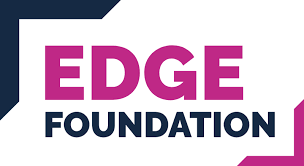Following reform in Wales there have been calls across the rest of the UK nations for holistic tertiary governance of higher, further, and vocational education and training. Edge is particularly interested in international policy learning, and we were keen to hear about international policies, practices, and experiences. This summer, we talked to a number of different stakeholders in Ireland through a series of online ‘study visits’ to learn more about how they are moving towards a tertiary system.
Ireland's education system has undergone significant reform in recent years, with a National Strategy to 2030 to create a more coherent, unified tertiary education structure that fosters collaboration, addresses skill gaps through upskilling and reskilling, and enhances access.
Ireland boasts large tertiary participation rates, with 62% of 25-34 year olds holding a tertiary level qualification in comparison to the UK at 57% and the EU-27 average of 41% in 2021.[1] Governance is distributed between the Higher Education Authority (HEA) and SOLAS (Further Education and Skills Service) under the Department of Further and Higher Education, Research, Innovation and Science (DFHERIS). Historically, the Irish system was fragmented between further education and training, Institutes of Technology, and universities, and competition for university places remains intense. In 2022 the Irish government announced a plan for tertiary education. It established the new National Tertiary Office (NTO) under the HEA with regional offices to encourage collaboration between FE and HE and to facilitate access to study for underprivileged groups.

